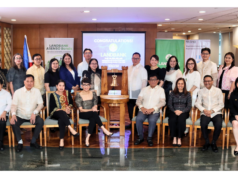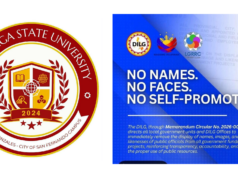July 01, 2025 – The Department of Education (DepEd) and Microsoft continue to deepen their collaboration to improve literacy outcomes in the Philippines, leveraging artificial intelligence (AI) tools to empower educators and learners. This growing partnership reflects a shared commitment to democratize AI for the collective benefit of the education ecosystem, aligning with Secretary Sonny Angara’s five-point education agenda.
Most recently, on June 18, students and teachers gathered for “Read and Lead: An AI-powered Literacy Day” at Ilugin Elementary School in Pasig City. The event featured live demonstrations of Reading Progress and Reading Coach, with students from grades 4 to 6 participating in guided reading sessions. Teachers and education specialists showcased how the tools personalize instruction and reduce administrative workload. Jessica Leaño, the school’s ICT coordinator, noted that the tools helped ten struggling readers become proficient and significantly reduced the time needed to generate literacy reports.
The event was attended by key representatives from DepEd and other government offices, including Assistant Secretary Marcelino Veloso III, Assistant Secretary Carmela Oracion, and Congressman Roman Romulo, who is the co-chair of the Second Congressional Commission on Education (EDCOM 2). All expressed strong support for the initiative and its potential to transform literacy outcomes nationwide.
Assistant Secretary Veloso shared, “Reading has shaped my journey—from law and ICT to public service. Aligned with the President’s call to make digitalization a standard in our schools, we’re exploring tools like Reading Progress that empower both learners and educators. Our commitment is clear: scale what works, so every Filipino child can thrive in a rapidly changing world.”
Assistant Secretary Carmela Oracion, who is spearheading the literacy initiative, emphasized the far-reaching impact of these efforts: “Literacy is the foundation upon which all learning rests, and by harnessing AI-powered tools, we equip our teachers and students with the resources they need to thrive in a digital era. Our goal is to ensure that every learner, regardless of background, has the opportunity to become a confident reader and lifelong learner. Collaboration with partners like Microsoft is key to realizing this vision and transforming literacy across the nation.”
Parents in attendance expressed strong appreciation for the Reading Progress initiative, noting that it empowers their children to become more confident, independent readers both at school and at home, while also allowing families to play a more active and supportive role in their children’s literacy development.
In Cabanatuan, the READExcel pilot program was introduced in three schools—Macatbong Integrated School, PG Crisostomo Integrated School, and LD Renon Integrated School. The initiative aimed to improve reading proficiency and significantly reduced the number of students struggling with reading. Pre-test results showed 14 students in the struggling category, which dropped to zero after the intervention. Gains were attributed to consistent reading practice, guardian support, and the use of instructional videos. Teachers and parents observed increased confidence and motivation among learners.
In Bais City, teachers have been using Microsoft’s Reading Progress tool to streamline reading assessments and better support students. What previously took two full days to assess now takes just two hours—freeing up time for lesson planning and personalized support. More than 14,000 learners across 60 schools have benefited from the tool, which enables students to practice reading independently while giving teachers real-time feedback on fluency, pronunciation, and pacing. Venus Marie Catubay, an English teacher at Bais City South Central School, shared how the tool helped her identify specific areas for intervention and track student growth more effectively.
Looking ahead, the partnership aims to align Reading Progress with DepEd’s National Reading Program tied to the Philippine Informal Reading Inventory (PHIL-IRI) goals. Together with industry partners, DepEd and Microsoft will work to scale the program to more schools nationwide and strengthen teacher capacity through digital fluency and innovative use of AI in the classroom.
“This is just the beginning,” said Peter Maquera, Microsoft Philippines CEO. “By combining technology with the passion of Filipino educators, we can close the literacy gap and empower every learner to succeed.”





